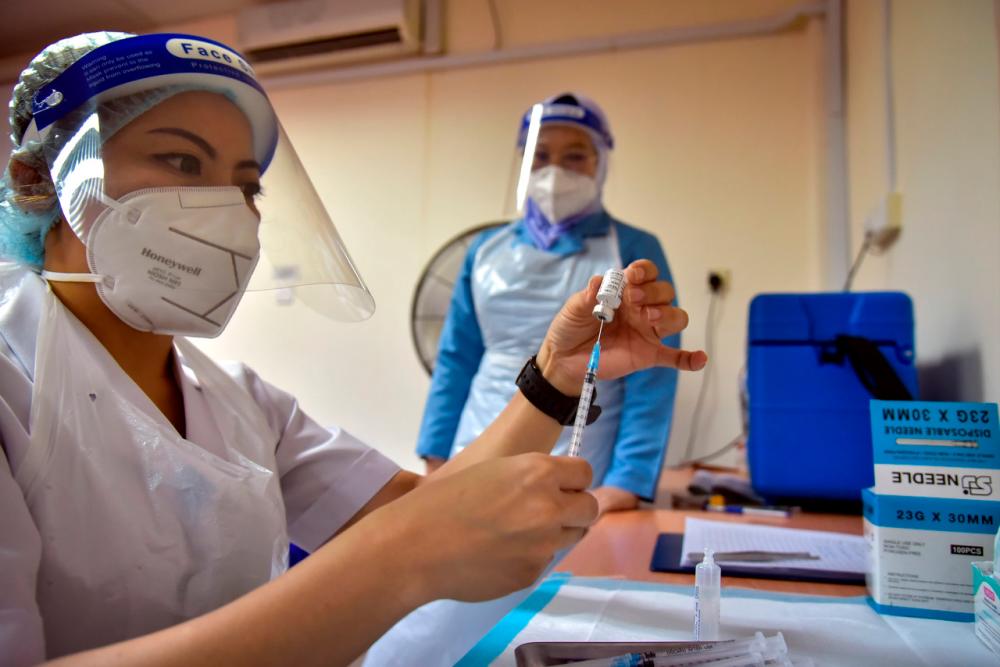PETALING JAYA: A third or even a fourth shot of a Covid-19 vaccine may raise confidence, but whether it will strengthen immunity for the long term has yet to be determined.
Nonetheless, the advantages of getting a booster shot far outweighs any fears of getting one, health experts say.
Many factors come into play in shaping humanity’s future with an infection that has left nearly five million dead over the past two years.
Booster shots alone may not be enough to keep one safe, especially if more strains emerge, according to Universiti Malaya professor of epidemiology and public health Dr Sanjay Rampal.
“But a booster shot can help to develop natural immunity, which is our best defence against infection,” he told theSun.
For instance, children may need a vaccine against chickenpox and measles, but they eventually develop a natural immunity to such infections.
It has yet to be determined how much boost is needed before natural immunity against Covid-19 kicks in.
Sanjay said there must also be vaccine equity to keep everyone safe.
He pointed out that many poor countries in Africa or parts of Asia still do not have access to adequate amounts of Covid-19 vaccines.
“In view of the global shortage of vaccines, booster dose programmes in many countries are likely to exaggerate global vaccine inequity,” he said.
“New strains could develop from those places, and even with booster shots, we may still be vulnerable to infection,” he added.
The Health Ministry has begun the process of administering booster shots since last week for high-risk groups, such as frontliners in the Covid-19 war, the elderly and those with comorbidities.
Health Minister Khairy Jamaluddin said those who have received the Sinovac and Pfizer Comirnaty vaccines will be given the booster shots. However, the government is still waiting for more information from Britain on the booster programme for AstraZeneca recipients before making any decision for booster shots.
Sanjay said concerns aside, older population will gain the most from a booster programme.
“Priority should be given to those who are immuno-compromised.
“There is also the argument that healthcare professionals should be prioritised but the benefits of a booster shot also vary with age, comorbidities and location of workplace,” he said.
He also insisted that it should be voluntary until and unless there is strong evidence that it is highly effective in preventing transmission and risk of severe symptoms.
Public health expert Dr Rusli Nordin said a booster dose is administered to prolong protective immunity, particularly if there is evidence that the protection is waning after a period of time.
“It is a sort of reinforcement. Studies have shown that Pfizer and Sinovac recipients should consider getting a booster shot, but not much information is available for those who have received the Astra-Zeneca vaccine,” he told theSun.
He said apart from the elderly and frontliners, expectant mothers should also be given priority to get the booster shots.
Universiti Putra Malaysia associate professor and medical epidemiologist Dr Malina Osman said booster shots are essential.
“From emerging data and observations, we can deduce that protection by the vaccine decreases over time,” she said.
“This then lowers your defences against the Delta strain of the coronavirus.”
Malina said in general, booster doses are recommended for all types of vaccines, but whether or not it is done depends on the policy of each country.
She added apart from senior citizens and those who work in elderly care centres, as well as frontliners, others who should also be given booster shots are those with diabetes mellitus, hypertension, heart problems, kidney diseases and other chronic ailments.
She also said the method of appointment distributions as suggested by the government should be maintained.














